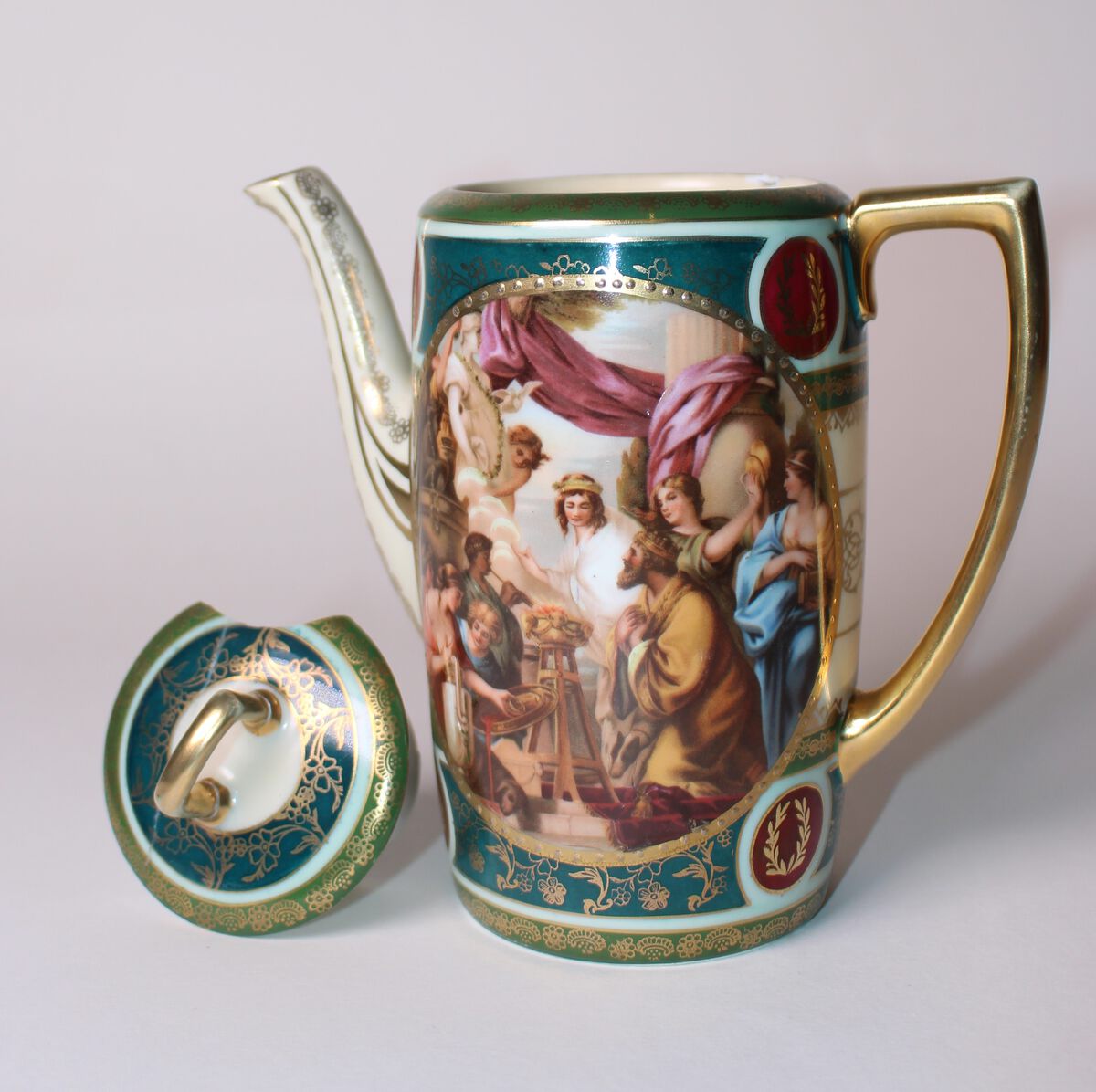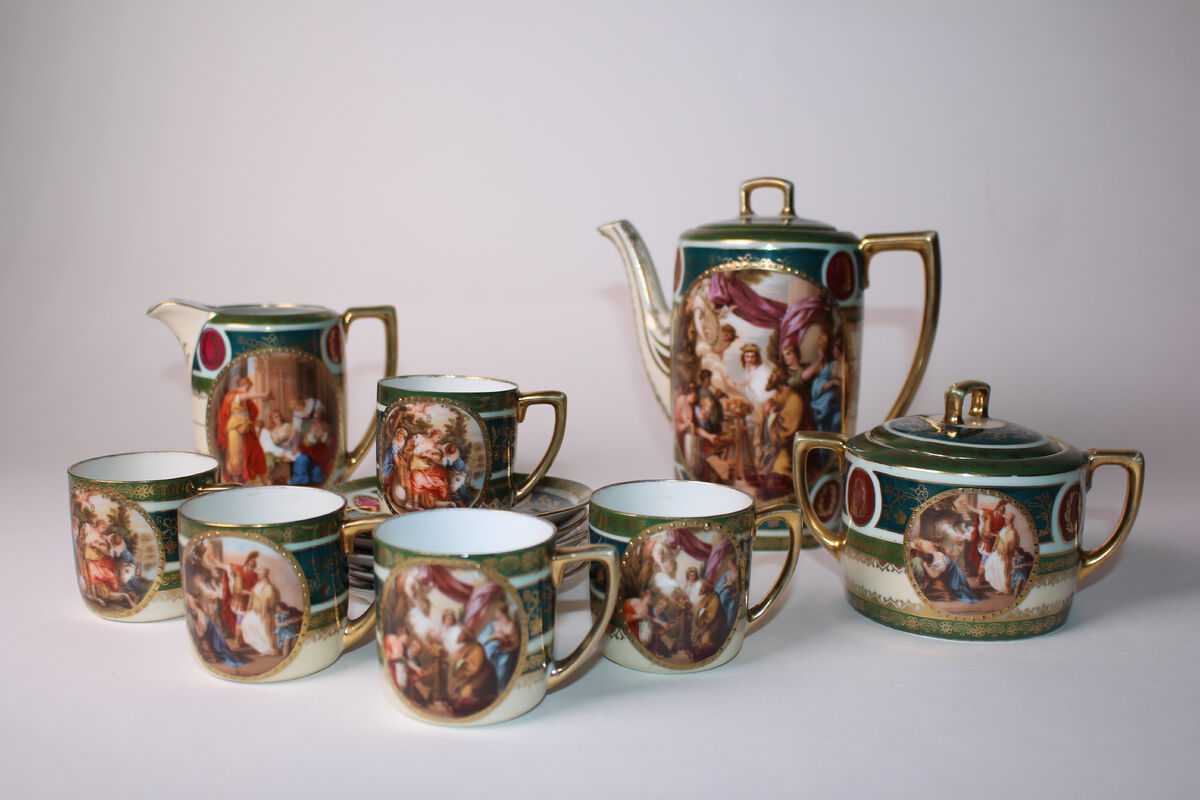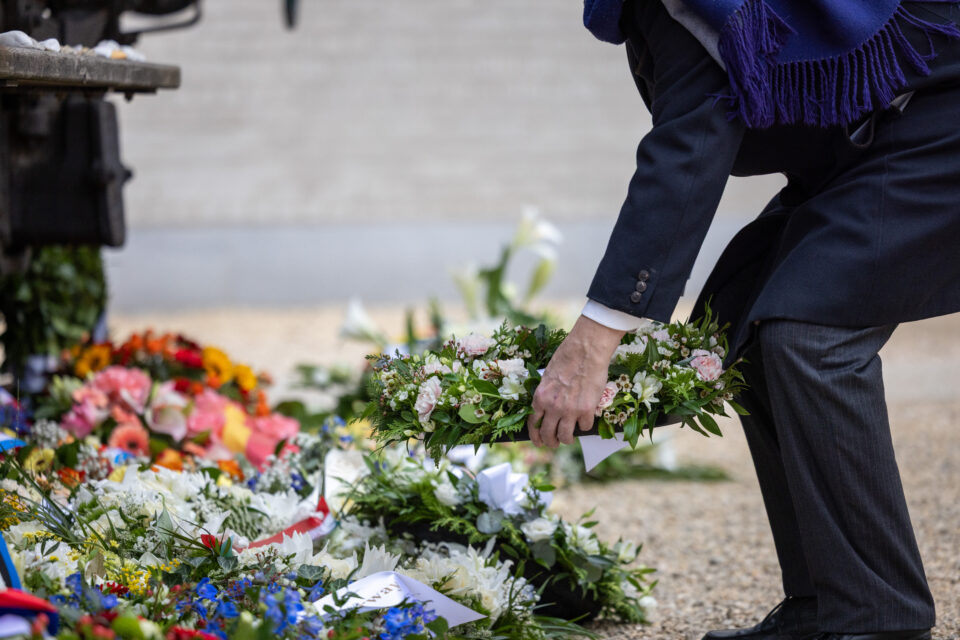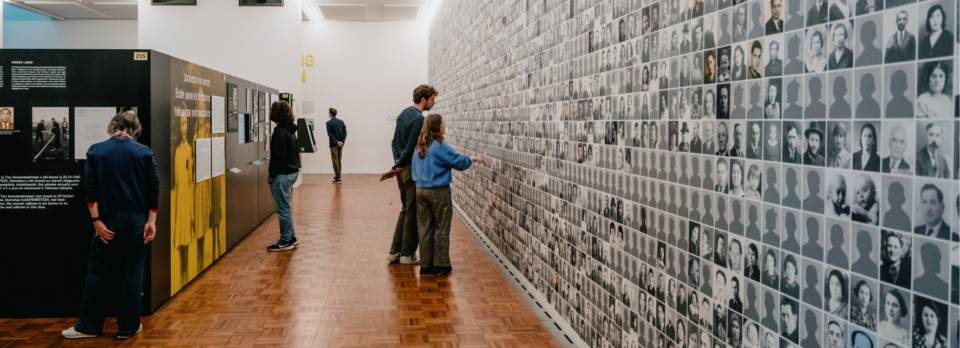Porcelain set Vanderhoydonck
We exhibit unique objects that were entrusted to the research centre in the glass display case near the museum entrance. The contents of the display case change every four months. The objects all tell a unique story.
On Friday 28 June 2024, we unveiled the new special objects that will be on display in the coming months as part of our rotating display. The story of the porcelain tableware set was revealed in the presence of the donors and custodians.
This porcelain tableware set was given to the Vanderhoydonck family of Wijchmaal in Limburg for safekeeping in 1941. After the war, it was never retrieved. We still have no idea who the owner was.
Possible owners
In 1941, hundreds of Jewish families were deported from Antwerp to Limburg. Local farms came to their aid with food, as their rations were often insufficient. One of those farming families was the Vanderhoydonck family. One day, an unknown Jewish woman and child came knocking on their door. Before leaving, she gave her tableware for safekeeping to sisters Leen and Mie, and their brother Tinus Vanderhoydonck.
The woman’s name is not known, but she said she came from Vienna and would return after the war to collect the tableware. Unfortunately, she never returned.
Frie Ceyssens inherited the set. He was a cousin of the Vanderhoydoncks and grew up on their farm. He took the set to Hasselt where he kept it in a special wooden cabinet.
Frie was convinced that the Jewish owners had been swallowed up in the Nacht und Nebel of the German concentration camps. But later it would transpire that he was wrong.
After the death of Frie Ceyssens and his wife Miet Keunen in 2023, his children gave this precious tableware for safekeeping to Kazerne Dossin in Mechelen for further research.
More about possible ownersWe are pleased that the researchers at Kazerne Dossin have delved into the unique story of these objects. They look perfect in the display case, ready to be discovered by visitors.
Jos Ceyssens
The research team at Kazerne Dossin set about searching for Jewish families with children from Vienna who resided in Wijchmaal in 1941. This allowed the team to narrow down the search to two Jewish families: the Koral-Vogel family and the Muhlstein-Ullmann family. Interestingly, these were the only two families of the 20 Jews living in Wijchmaal in 1941 to survive the war. Although researchers were able to trace their next of kin, the owner could not be identified with certainty.
Meer over mogelijke eigenaars
About the set
The ‘Kerag’ brand tableware set consists of a coffee pot (or teapot), a milk jug, a sugar bowl, and five cups with saucers. Each piece depicts scenes from the Old Testament. The set is no longer complete; one cup and one saucer are missing.
This fascinating story shows what life was like during World War II. We are grateful to be able to present these items to the public.
Tomas Baum, director Kazerne Dossin.
Find out the entire story on the online memorial.
Find out more



